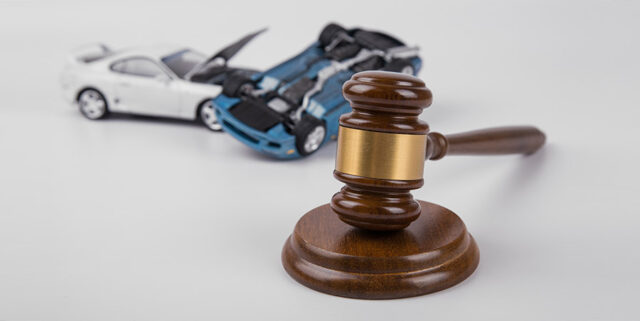
If you are the victim of an accident, you may be able to get compensation by suing the person or business responsible for it. This money can cover your medical expenses, lost wages, and other costs if you don’t take the proper steps immediately. It may not be enough to pay off all of your bills, especially if they add up to several thousand dollars or more.
Here are some pointers to help you manage your settlement funds securely while getting back on your feet after an accident or injury.
What is Personal Injury?

A personal injury can be any injury you suffer due to another person’s negligence. It can include physical injuries, emotional injuries, or even financial damage. If you have been the victim of a personal injury, you may be entitled to compensation from the person or entity responsible for your injuries.
There are many types of personal injury cases, but some of the most common include car accidents, slip, and fall accidents, medical malpractice, and workplace accidents. No matter what type of accident you were involved in, you may have a valid personal injury claim if you were injured due to someone else’s negligence.
If you have been a personal injury victim, you should contact an experienced personal injury lawyer as soon as possible to discuss your case. A lawyer will be able to help you determine if you have a valid claim and, if so, what types of damages you may be entitled to recover.
If you’re like most people, you may not have a lot of extra money sitting around to cover unexpected expenses. It is especially true if you’ve been injured in an accident and cannot work. Fortunately, options are available to help you protect your costs until you can get back on your feet.
One option is a settlement loan. Universalfunds.net provides short-term loans typically used to cover expenses related to personal injury claims. The loan is repaid when the case settles or goes to trial, with the amount depending on the outcome of the case.
If you’re considering a settlement loan, shopping around and comparing offers from different lenders is essential. Read the fine print and understand the terms and conditions before signing anything. It’s also necessary to speak with a personal injury attorney to ensure that taking out a loan won’t threaten your case or put you at a disadvantage.
Settlement Funding for Car Accident Cases

If you have been in a car accident, you may wonder how you will cover the cost of your medical bills and other expenses. A personal injury settlement can provide the financial relief you need, but managing your settlement funds wisely is essential.
6 Tips To Manage Your Personal Injury Funds Securely
If you have been injured in an accident, you may be entitled to compensation for your medical bills, lost wages, and other damages. However, dealing with insurance companies and managing your personal injury funds can be complex and time-consuming. If you’re expecting to receive a confidential injury settlement, there are some essential things to keep in mind to ensure your funds are managed securely.
1. Keep Your Settlement Funds Separate
If you’re like most people, you don’t have a lot of extra money sitting around. So, when you receive a settlement from a personal injury lawsuit, it can be tempting to spend it all at once. However, it’s essential to resist this temptation and keep your settlement funds separate from your other money.
2. Stay Disciplined
It can be easy to overspend when you have extra money, but staying disciplined and sticking to your budget is crucial. It will help ensure that you can pay off all of your debt without putting yourself in financial jeopardy.
3. Pay Off High-Interest Debt
If you have high-interest debt, you must pay it off as soon as possible. The interest you’re paying on the debt is likely much higher than the interest you’re earning on your personal injury settlement, so getting rid of that debt as quickly as possible is essential.

4. Create a Budget and Stick To It
When managing your personal injury settlement funds, one of the most important things you can do is create a budget and stick to it. It will help ensure you have enough money to cover your expenses and still have some left for savings or investments.
To create your budget, start by listing your regular monthly expenses. It can include your mortgage or rent payment, car payment, insurance premiums, utility bills, and food costs. Once you have a good idea of your monthly expenses, you can start looking at your personal injury settlement funds and determining how much you can realistically set aside each month.
5. Be Cautious About Using Credit Cards
Credit cards can be a helpful tool in managing your personal injury funds, but there are some things to keep in mind.
- First, keep track of all expenses on a credit card to stay within your budget. Second, be cautious of using credit cards for large purchases, as you may pay more in interest than you would if you paid with cash.
- Lastly, pay your credit card balance monthly to avoid accumulating debt.
Following these tips, you can use credit cards to help manage your personal injury funds without putting yourself at financial risk.
6. Create an Emergency Fund
If you or a loved one has been seriously injured in an accident, you may be entitled to compensation from the at-fault party. However, many personal injury victims find themselves in financial distress while waiting for their cases to settle.
Creating an emergency fund is essential to protect yourself from financial hardship before your accident occurs.
Conclusion
Many personal injury cases go on for a long time. As a result, they also cost a lot of money. If you’re awarded settlement funding, it can be hard to manage. With these tips, you’ll be able to handle your settlement with ease and keep all of it in your pocket.







